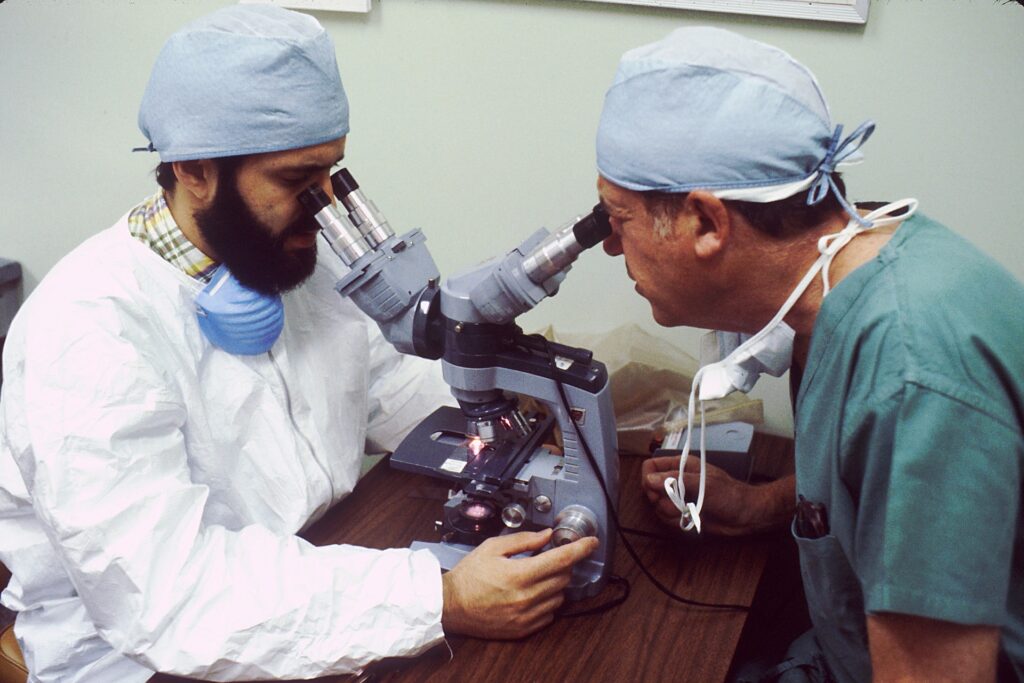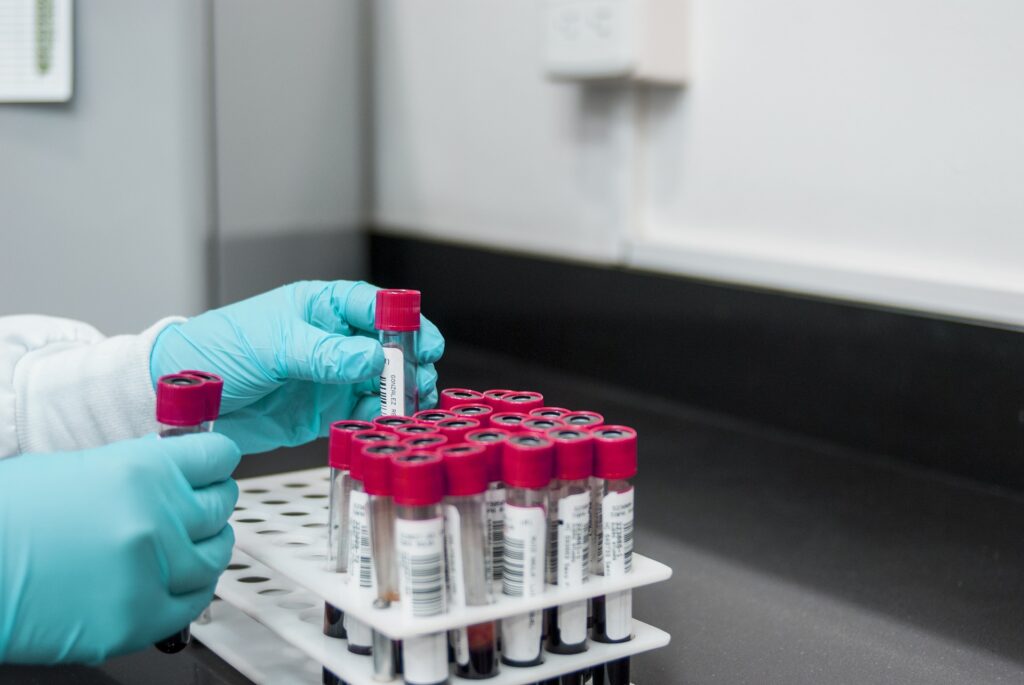A common question is can neem be used as a cancer treatment? There are numerous studies and research to say that it can.
A research team of Banaras Hindu University, in India, recently shared results from some of their cancer treatment research. They revealed that nimbolide, a bioactive component of the neem plant had good therapeutic efficacy against T-cell lymphoma cancer cells. Nimbolide is extracted from leaves and flowers of the neem tree and is used to help fight cancer.
In clinical studies, extracts from all major sections of the plant showed promising chemo preventive and therapeutic benefits. Extensive studies show leaves, flowers, fruits, and seeds are beneficial.
Neem has been used as a traditional medicine for ages to treat and cure a variety of diseases and illnesses. It is anti fungal, anthelmintic, antibacterial, antiviral, anti-diabetic, contraceptive, and sedative properties have been discovered in its components. Aside from the aforementioned qualities, laboratory research suggests that extracts of the plant have powerful anticancer properties.
Can Neem Be Used To Prevent Cancer?
The components extracted from the neem tree have been used in traditional medicine for centuries. All parts of the neem tree have consistently shown chemo preventive and anti tumor effects on multiple types of cancer. Azadirachtin and nimbolide are among the few bioactive components that have been studied extensively. However, research on a great number of additional bioactive components is warranted.
Herbalists throughout Southeast Asia have used the neem tree successfully for centuries to reduce tumors. Researchers have now found that polysaccharides and limonoids found in neem bark, leaves and seed oil reduced tumors and cancers. Studies in India, Europe and Japan also showed effectiveness against lymphocytic leukemia. It enhances the hosts immune responses against tumor cells.
In several studies in Japan, hot water neem bark extracts showed remarkable effectiveness against several types of tumors. Several types of extract were tested at different doses and compared to the effectiveness of a standard anti-cancer agent. The anti cancer effects showed great results on malignant cells. It causes the disruption of cell proliferation, the induction of cell death, and suppression of cancer angio genesis. It also facilitated restoration of cellular reduction, oxidation, and redox balance.
Several of the extracts were equal to or better than the standard anti-cancer agent against solid tumors. When the tests were done using a purified extract of neem bark, the results were even more impressive against solid tumors. At that time the extracts used in testing were still very crude. When compared to the extremely purified active compounds we saw great results in treating tumors. Further studies using truly pure active compounds are expected to produce results at least equal to the control. There have been many medical advancements in the study of the effects of neem on cancer cells.

Neem is known for its ability to effect cancers. An amazing reduction in tumor size was reported when extracts were injected around the tumors. Injections of neem extract around tumors showed remarkable reduction in size in just a few weeks. Skin cancers may be particularly responsive to neem. A number of reports have been made by patients that skin cancers have disappeared after several months of daily application of a neem based cream.
Clinical research in multiple countries found in Neem bark, leaves, and seeds demonstrated some remarkable effects against cancers. These compounds not only reduced tumors and cancers but were also effective against lymphocytic leukemia. A university researcher used an extract of neem leaves to prevent the adhesion of cancer cells to other cells in the body. Without the ability to stick to other cells, cancers cannot spread through the body. They are more easily destroyed by the body’s own immune system or by other treatments. polysaccharides and limonoids
Suggested Organic Neem Products: Neem Capsules, Neem Leaf, and Neem Oil.
Notes
In vitro studies suggest that neem can inhibit cancer cell growth. It is currently being studied as an effective treatment for cancer.

Does Neem Treat Cancer Cells?
Neem Components Inhibit Cancer Cell Growth
Uncontrolled cancer cell growth and proliferation is one of the fundamental hallmarks of cancer. This exponential growth plays an important role in the development of tumor and cancer metastasis. Chemopreventive and therapeutic agents are used to inhibit the growth of tumor cells.
Neem extracts suppresses cancer cell multiplication, and growth of tumor cells through the disruption of cell cycle progression. Neem seed oil inhibits growth of HeLa cervical cancer cells, and NLE shows proliferation-inhibitory effects in prostate cancer cells. Interestingly, the androgen dependency status fails to modulate anti-proliferative effects of NLE in prostate cells.
Neem extract disrupts the proliferation of both androgen dependent and independent prostate cancer cells. Androgen-refractory prostate cancer cells are more resistant to apoptosis and lead to prostate cancer recurrence. Treatment with active components may provide therapeutic benefits to patients with recurrent prostate cancer. The anti-proliferative effects of neem are consistent in both estrogen dependent and independent breast cancer cells.
How Does Nimbolide Work On Cells?
The detailed mechanisms of nimbolide are currently being studied and scientific knowledge is advancing. This treatment regemin disrupts cell cycle progression, inhibits proliferation of HeLa, breast cancer, choriocarcinoma, lymphoma, leukemia and melanoma cells. Neem components have been characterized show similar suppressive effects on the growth and proliferation of tumor cells. Treatment with NLE or neem-derived gedunin decreases proliferation of pancreatic or ovarian cancer cells.
Studies on the effects of neem or its components on cell cycle and proliferation of tumor cells have identified multiple target proteins. For example, treatment of HeLa cells with azadirachtin decreases the levels of cyclin B and cyclin D1, and induces the expression of CKI p21, which collectively led to G0/G1 cell cycle arrest. Analysis of cell cycle distribution in nimbolide-treated colon carcinoma cells revealed that this active neem component induces both G0/G1 and G2/M arrest accompanied by alterations in cyclins, CDKs and CKIs. Additional nimbolide targets for G2/M cell cycle checkpoint proteins are CHK2 and Rad17. Cell cycle progression is tightly controlled by a complex network of regulatory proteins including cyclins. It also controls cyclin-dependent kinases (CDKs), CDK inhibitors (CKIs), cell cycle checkpoint proteins, and transcription factors such as E2F.
The subsets of differentially regulated genes induced by gedunin, identified by bioinformatics analysis, encode proteins involved in cell cycle control as well as other cellular processes. Interestingly, the combination of gedunin and cisplatin further decreases the proliferation of treated ovarian cancer cells by almost 50% compared to the cells treated with cisplatin alone. These findings suggest the possibility that gedunin and other potential neem components could enhance the efficacy of chemotherapeutic agents, and such combinatorial therapy may offer additional benefits.
In vivo studies of neem extracts or components show significant anticancer properties, confirming the clinical relevance of the in vitro findings. NLE inhibits the process of carcinogenesis in carcinogen 7,12-dimethylbenz[a]anthracene (DMBA)-induced HBP mouse model, which is accompanied by decreased expression of proliferating cell nuclear antigen (PCNA) and upregulation of cytokeratin, suggesting that neem components suppress proliferation and induce differentiation, respectively.
Does Neem Kill Cancer Cells?
The Effects Of Neem Components On Cancer

Neem’s active ingredients suppress the growth of cancer cells while also inducing apoptosis and other types of cell death, such as autophagy. Extracts from seeds and leaves of neem induce apoptosis in various types of cancer cells such as leukemia, prostate, cervical, colon, stomach, and breast. These extracts also show positive effects on choriocarcinoma, and hepatocarcinoma cells. These findings suggest a proapoptotic effect of neem extracts on a broad spectrum of cancer cell types.
The administration of individual neem components also induces cancer cell death. For example, nimbolide induces apoptosis in breast cancer, prostate cancer, hepatocarcinoma, cervical cancer, choriocarcinoma, colon cancer, lymphoma, leukemia, and melanoma cells.
Azadirachtin shows similar effect in cervical cancer cells. An increasing number of less-characterized limonoids that have been recently isolated from different parts of the plant also exhibited proapoptotic effects in leukemia and stomach cancer cells. Consistent with the anti-proliferative effects of neem, its proapoptotic potentials are not affected by the hormone-dependent status in prostate cancer and breast cancer cells.
The Effects Of Neem extracts On Cancer Cells
The general modulatory effects of neem extracts on the elimination of cancer cells are also highlighted by their capability to induce other forms of cell death, such as caspase-independent apoptosis and autophagy. The release of apoptosis-inducing factor (AIF) from mitochondria translocates to cell nucleus, and subsequently, induces DNA fragmentation and chromatin condensation causing caspase-independent apoptosis. Neem oil limonoids promote the release of mitochondrial AIF in addition to cytochrome c, and thus, also induces caspase-independent cell death in prostate cancer cells. Autophagy is another form of programmed cell death that plays important roles in normal cell growth.
Emerging evidence suggests that deregulation of autophagy may also regulate tumorigenesis. Reduced levels of autophagic activity are observed in transformed cells than normal cells, and autophagy may account for the cell death induced by certain therapeutic agents. Our findings in prostate and colon cancer cells indicate that neem oil induces concomitant autophagy and apoptosis, both of which do not require p53 activity. In addition, the two forms of cell death appeared to crosstalk through unknown mechanism(s) and inhibition of autophagy enhances elimination of cancer cells via apoptotic pathway. Our studies also show increased expression of autophagy marker upon neem oil exposure in the presence of caspase inhibitor, suggesting that autophagy may also contribute to cell death during absence or inhibition of apoptosis. The close interconnection between apoptosis and autophagy is also supported by the findings that other natural compounds such as resveratrol enhances apoptosis upon autophagy inhibition.
The in vitro apoptosis-inducing property of neem in tumor cells has also been validated by in vivo studies. For example, treatment with NLE increases the rate of apoptosis in cancer tissues using 4T1 breast cancer mouse model. In addition, NLE-induced inhibition of prostate cancer xenografts in nude mice is associated with the induction of tumor cell apoptosis, and reduction of prostate-specific antigen and tumor growth. Studies of DMBA-induced HBP oral carcinogenesis model revealed that neem components or extracts induce a number of molecular events that are associated with the induction of apoptosis, including increased expression of Bim, Bax, Apaf-1, caspase 8 and caspase 3, inhibition of Bcl-2 expression, and increased PARP cleavage.
Among the rich body of literature exploring the apoptosis-inducing effects of neem, a study published recently shows that one patient with chronic lymphocytic leukemia (CLL) demonstrated disease regression following oral administration of NLE. To investigate the underlying mechanism of clinical efficacy, the authors studied the effects of NLE on the primary CLL cells derived from 41 patients. Treatment with NLE decreased the viability of CLL cells in a dose-dependent manner through inducing multiple forms of cell death, demonstrated by cleavage of PARP and caspases, inhibition of Bcl-2 and p53 expression, loss of mitochondrial membrane permeability, nuclear translocation of AIF as well as increased LC3-II levels.
Another property of neem extract is to inhibit and prevent adhesion of cancer cells to our bodies. Without adhesion, they cannot root and grow and are more easily destroyed by the immune system or other cancer treatments.
Anecdotal evidence shows that injections around tumors show tumor reduction as well as patients reporting that skin cancers disappear after a few months of daily application of neem-based cream.
Treatment.
Complimentary only, consult your doctor.
Suggested Products: Neem capsules, leaf, and oil.
The Effect of Neem Leaves Extract On Cancer In Rats
In this study, the ability of an aqueous extract of fresh Azadarichta indica leaves to prevent liver cancer is assessed. Twenty male Sprague Dawley rats weighing between 150 and 250 g were acclimated for a week before to use. Five rats each were randomly assigned to one of four groups: the cancer control group (C), the cancer treated with 5% Azadarichta indica extract group (CAI), the normal control group (N), and the normal treated with 5% Azadarichta indica extract group (NAI). Diethyl nitrosamine (DEN), a hepatocarcinogenesis initiator (200 mg kg-1), and 2-acetylaminofluorene, a hepatocarcinogenesis promoter (0.02 percent in food) were administered intraperitoneally to rats in group C and CAI, causing them to develop cancer.
The rats in groups N and NAI received a single intraperitoneal injection of corn oil and served as the control group. Both CAI and NAI groups consumed the herb orally. Alpha-fetoprotein (AFP) content in serum was assessed as a liver tumor marker. Serum and liver cytosol levels of glutathione S-transferase (GST) and glutathione peroxidase (GPx) were assessed. According to the study’s findings, there is a significant difference (p0.05) between the C and CAI groups in terms of serum alpha-fetoprotein, liver cytosol levels of glutathione S-transferase and glutathione peroxidase, and serum levels of fetoprotein. While there was no change in the GST and GPx levels between the NAI and N groups (p>0.05), there was. The study’s findings suggest that taking 5% of the leaves’ aqueous extract led to complete
Conclusion: Neem is very effective against cancer cells. It inhibits cancer cell growth, movement, and proliferation. Has been found to work well with ulcers, tumors, and many types of cancer cells.
Super Neem | Organic Neem Oil, Neem Cake, Neem Soap
Dear Readers,
Hi!
I am an ayurvedic doctor working at A.I.I.M.S , New Delhi as a research fellow in breast cancer clinic. We are using neem very extensively in our wound clinic and have recently started its use in breast cancer clinic. I am very much impressed/convinced by the medicinal properties of neem in curing cancer. These treatments are studied in ayurvedic treatises like charakh samhita, sushruta samhita.
We recommend patients who are suffering from breast cancer and gastrointestinal cancer to chew 8-10 neem leaves early in the morning. Should be taken with lukewarm water on an empty stomach. I have observed that their white blood cells count had increased considerably.
Neem being a depurative purifies the blood and being an astringent decreases the body heat. I wish to cure my patients exclusively with neem. Especially since taking chemotherapy causes lots of side effects like nausea, vomiting, diarrhea, loss of appetite, alopecia and fever.
I am planning to suggest my patients to adapt neem as a primary treatment and to continue with chemotherapy.
I would appreciate if their are any queries from any cancer patient and would be very happy to help.
With regards,
Dr. Preeti kachroo
(Ayurvedic Practioner)
Neem and cancer treatment: Reference
(Pettit, 1983). (Fujiwara, 1982); (Chatterjee, 1961); (Hartwell, 1983) (Shimizu et al, 1985) (Udeinya, 1994)
